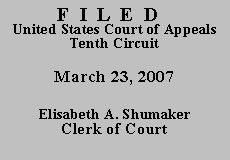

Montgomery Carl Akers (Akers), a federal prisoner appearing pro se, appeals the district court's dismissal of his civil complaint, styled as a 42 U.S.C. § 1983 action, but construed by the district court as a claim brought pursuant to Bivens v. Six Unknown Named Agents, 403 U.S. 388 (1971). We exercise jurisdiction pursuant to 28 U.S.C. § 1291 and affirm the dismissal.
Akers' civil rights action alleges a broad conspiracy to deprive him of various constitutional rights. He alleges the conspiracy involves a federal district court judge, federal prosecutors, a federal public defender, and an FBI agent all of whom were involved in his then pending federal wire fraud case. Akers sought relief for alleged constitutional violations in the form of monetary damages and the cessation of all further proceedings in his criminal case. The district court construed Akers' complaint as a Bivens claim, then dismissed it pursuant to 28 U.S.C. § 1915A for failure to state a claim upon which relief can be granted.
Specifically, insofar as Akers sought injunctive and declaratory relief in regards to his criminal case, the district court determined that the appropriate avenue for the remedy sought would be a direct appeal and/or the filing of a post-conviction petition as provided by 28 U.S.C. § 2255. The district court also relied on Heck v. Humphrey, 512 U.S. 477 (1994) to conclude that the relief he sought was premature until and unless he could first demonstrate that his conviction had been reversed, set aside, or otherwise invalidated. The district court also held that Akers' claims against the district court judge and the federal prosecutors were barred by recognized immunities from suit and that Akers' allegations were insufficient to defeat these immunities. Last, the district court determined that permitting Akers to amend his complaint to cure these deficiencies would be futile.
Akers challenges this dismissal, essentially reasserting those allegations set forth in his complaint. We review de novo a dismissal under § 1915A for failure to state a claim. See McBride v. Deer, 240 F.3d 1287, 1289 (10th Cir. 2001). "Dismissal of a pro se complaint for failure to state a claim is proper only where it is obvious that the plaintiff cannot prevail on the facts he has alleged and it would be futile to give him an opportunity to amend." Perkins v. Kansas Dep't of Corr., 165 F.3d 803, 806 (10th Cir. 1999). In conducting our review, we construe the pro se pleadings liberally, applying a less stringent standard than formal pleadings drafted by lawyers. Garrett v. Selby Connor Maddux & Janer,
425 F.3d 836, 840 (10th Cir. 2005). But "we are not bound by conclusory allegations, unwarranted inferences, or legal conclusions" contained in those pleadings. Hackford v. Babbitt, 14 F.3d 1457, 1465 (10th Cir. 1994).
After reviewing the record, we agree with the district court that to the extent Akers seeks monetary damages, success on the merits of this case would necessarily imply the invalidity of his criminal conviction. In Heck, 512 U.S. at 486-87, the United States Supreme Court held that "in order to recover damages for allegedly unconstitutional conviction or imprisonment, or for other harm caused by actions whose unlawfulness would render a conviction or sentence invalid, a § 1983 plaintiff must prove that the conviction or sentence has been reversed on direct appeal," or otherwise declared invalid, called into question by the issuance of a habeas writ, or expunged. See Crow v. Penry, 102 F.3d 1086, 1087 (10th Cir. 1996) (concluding that Heck applies to a Bivens claim). Akers has failed to allege or show that his conviction has been reversed, declared invalid, expunged, or called into question. Thus, his claim is premature and he has failed to state a claim upon which relief may be granted.
We also agree with the district court that to the extent Akers seeks to challenge his criminal conviction and sentence, he may file a direct appeal(1) and/or seek post-conviction relief as provided by 28 U.S.C. § 2255. See McIntosh v. U.S. Parole Com'n, 115 F.3d 809, 811 (10th Cir. 1997) (explaining that a § 2255 proceeding is a collateral attack on the validity of a conviction and sentence). And, as Akers' complaint contains no other cognizable cause of action, we conclude that the district court did not err in its dismissal.
Accordingly, we AFFIRM the district court's dismissal of Akers' complaint and DENY Akers' second motion for appointment of counsel.
Entered for the Court
Mary Beck Briscoe
Circuit Judge
*. This order and judgment is not binding precedent, except under the doctrines of law of the case, res judicata, and collateral estoppel. It may be cited, however, for its persuasive value consistent with Fed. R. App. P. 32.1 and 10th Cir. R. 32.1
1. Akers was eventually convicted of wire fraud in federal district court and his criminal appeal is currently pending before this court.